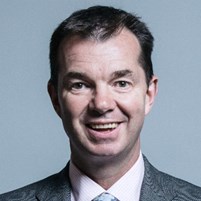
An industry group, jointly convened by the Association of British Insurers (ABI) and the Pensions and Lifetime Savings Association (PLSA), has explored various solutions to tackle the issue of small deferred pension pots in the automatic enrolment (AE) workplace pension market, and narrowed them down to three options.
The Small Pots Co-ordination Group includes experts from the Department for Work and Pensions (DWP), a range of pension providers, industry, regulatory and consumer bodies, and stakeholders. It was set up to tackle the growing issue of small pots of pension savings which are being accumulated by people working in multiple jobs over the course of their career.
The providers and schemes’ costs of administering these pots pose a considerable challenge to the UK’s pension system and presents potential risks to savers. They also risk undermining the purpose of pensions being a long-term retirement income, as people are more likely to take smaller pots as a cash lump sum. By the end of this year, there are likely to be more than 11 million small, deferred pots in total; without any change in the next ten years, that figure will likely double again.
In its Spring 2022 report, the Group has recommended three potential solutions to be taken forward:
- The Pot Follows Member model means that when an employee moves jobs, their deferred pension pot in their former employer's scheme automatically moves with them to the new employer’s scheme, with the opportunity to opt out.
- Under the multiple Default Consolidators model, certain pots will automatically be transferred to a small pot consolidator, with savers being given an opportunity to opt out. If a person has multiple deferred small pots, these could be linked by the consolidator. This model comes with a variety of design choices. A single default consolidator model has been discounted, and should not be progressed further.
- The Member Exchange model, whose principles have been tested with three master trusts, identifies a small deferred pot in one master trust and an active pot in another master trust and merges the two into the active pot.
The Group has also suggested that a combination of these three models may be the best approach. However, further legislation will be needed for the proposed model(s) to work. The Member Exchange pilot has found that creating a framework for transfers without savers’ consent, something which is crucial to reducing the number of small pots, is not possible at this stage. The Group has therefore recommended legislation be brought forward which compels relevant providers to take part in the solution(s), defines the pots in scope and defines the liability model. Contract-based providers in the AE market should also be enabled to carry out non-consented transfers.
Further analysis on the three models by industry and Government is now needed to understand which offers the best outcome for savers. This should include which models consumers prefer, and their cost and effectiveness in reducing the number of small pots. This analysis must also consider the impact of any future model on the structure and sustainability of the pensions market. Guy Opperman, Minister for Pensions and Financial Inclusion, said:
Guy Opperman, Minister for Pensions and Financial Inclusion, said:
"Given the risks that the growth of deferred small pots presents to savers and their ability to plan for retirement, it is vital that we find the right solution.
“I thank the Small Pots Co-Ordination Group for their recommendations and look forward to continuing the close collaboration between regulators, pension providers, industry bodies and stakeholders as we collectively work to ensure the record number of Brits now saving for a pension can achieve the best retirement possible.”
 Rob Yuille, Assistant Director, Head of Long Term Savings Policy, at the ABI said:
Rob Yuille, Assistant Director, Head of Long Term Savings Policy, at the ABI said:
“The number of inactive small pots is rising rapidly, driven by automatic enrolment over the last decade. If this is left unaddressed, pension savers could lose track of their money and may not get the most out of their retirement savings. Pensions Dashboards may increase the number of member-initiated transfers, but that is unlikely to go far enough to fix the problem.
“As an expert group we have identified viable models which should be taken forward. The evidence shows that compulsion will ultimately be needed for a whole of market solution that benefits all savers.”
Joe Dabrowski, Deputy Director of Policy at the PLSA, said:
“Supported by the expertise of pension providers, regulatory and consumer bodies, the Co-ordination Group has made significant progress in setting out a pathway to solve the small pots issue once and for all.
“Left unchecked, the number of small pots is set to more than double to 27 million by 2030 with implications for the engagement and understanding, as well as the retirement outcomes, of affected savers.
“All the evidence indicates that a successful, long-term solution will need a legislative footing. Given the expanding number of pots it will be important to take forward a solution quickly, and we look forward to working with Government to make this happen.”
Notes to editors:
The Small Pots Co-Ordination Group was formed in 2021, after the DWP recommended it was established, and comprises experts from a range of pension providers, industry, regulatory and consumer bodies and stakeholders.
The Group aims to find a solution to the growing number of small deferred pots in the pension system, so that it can work better for scheme members.
The Group’s first report from September 2021https://www.plsa.co.uk/Portals/0/Documents/Policy-Documents/2021/Small-pots-cross-industry-co-ordination-group-update-report.pdf outlined the case for small pots consolidation.
For more information contact the Press Office.
